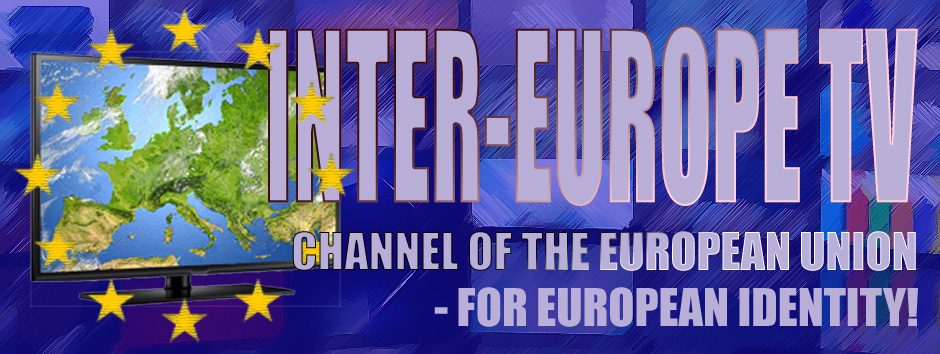The new communications point of view of European Union
with the concise concept of the main project
INTER-EUROPE TV Channel
The European Union has the right – if not yet then it should declare its right – to inform all of its citizens directly sending Member State subject information, broadcasts through media.
„INTER-EUROPE TV” is a European public service television channel – which is compulsory and available preferably free of charge for each and every European household.
„INTER-EUROPE TV” could be realized and financed as a result of an EU communications regulation package.
„INTER-EUROPE TV” would be about 90% entertaining, cultural and educational and 10% informative and news channel.
- The entertaining, cultural and educational programs would be created by the local editorial staff of the Member State
- while the informative and news programs would be edited from EuroNews newscasts.
Monthly broadcasting:
- Today the EU has 28 Member States and as the result of brexit soon there will be 27. This number pleasantly harmonize with the number of days in a month.
- According to our plans – as a result of a lottery – each Member State would own one day of the month. At that day in this channel – excluding the central EuroNews news – all shows and information would be about the chosen Member State.
- The program would be edited by the editorial staff of the chosen Member State following a permanent, by consensus accepted program plan.
- „INTER-EUROPE TV” would be broadcasted 24/7.
- The notable points of the whole program plan would be the news and informative blocks which would only fill 10% of the complete program. Its contents would arrive from EuroNews to be shown always at the same time.
- Following this plan the 90% of broadcasting would remain the responsibility of each Member State.
- It seems advisable for Member State editors to make 8 to 12 hours of fresh programs for each occasion and the ready-to-play programs could be broadcasted once or twice repeated within 24 hours.
- By default the programs would be made by the Member States in their own official language, but they have to be synchronized, translated and subtitled in one another widely used European language such as English, German, French or Spanish.
- Additional language assignments are performed by a central European workshop and applied as an optional audio channel for the programs. Thus, viewers – where this technical option is available – are free to choose from all the European languages, so they can listen in to the original or any available languages while the show runs.
- It is recommended that in every evening and morning track every one of the member countries have at least one, but two, or three of their own feature films shown.
- The other program blocks would be entertaining, cultural, nationally informative, there can be talk shows and music shows or occasionally – if they are up to date – sports programs.
Financing:
- It is up to the Member States to fill up a monthly program with the shows mentioned above and the financing of the related production.
- It is also for the Member State to transmit broadcasts from the central satellite to terrestrial and cable television channels of the country or to digital broadcasters so that the programs can be accessed to the widest possible spectator – in the program bands ordered by relevant regulation.
- The EU is tasked with funding satellite broadcasting at European level, funding and broadcasting of national programs and editing of EuroNews news programs.
EU funding seems necessary to run the websites of “INTER-EUROPE TV” programs and to distribute additional Internet opportunities, and above all the different social media surfaces.
Informing X and Y generations:
As we know, these generations are less and less TV consumers. They get their information on the internet and social media channels. As mentioned in the funding assignments, the main focus of information on these age groups is the online areas of social media, which will require a small but effective independent editorial office.
The remaining days of the month:
The remaining days of the month can be widely used for non-EU countries but also for countries with close partnership to EU; they can be given the opportunity to introduce themselves at EU level. Thus, Norway, Switzerland, or countries waiting in the EU lobby, Ukraine, Turkey, etc. may occasionally have the opportunity to edit one day for “INTER-EUROPE TV”
If the leaders of the EU believe it necessary, one day of the month can be considered by the Brussels Centers for themselves.
Occasionally the EU’s remote, global partners – the US, China, Russia, India, etc. – will also be given the opportunity to introduce their countries to the EU.
Funding these days can be of significant help to the budget of the whole INTER-EUROPE TV project.
We are certain that this project, in the event of a professional launch will be able to induce explosive positive change in the community of Europe’s citizens.
01.01.2019. Budapest
Miklós Borz
media and communication expert
